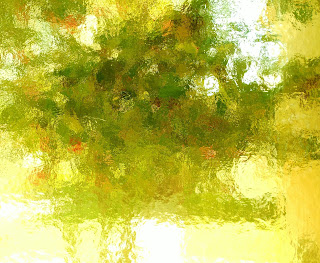
Why do we push ourselves to the point of detrimental consequences such as fatigue or exhaustion, anxiety or stress, depression or isolation…? Is it the expectation we feel to act a certain way coming from society, family and friends, work associates, or ourselves?
We aren’t born this way, but it becomes engrained in our psyche. And how many of us stop to question it? Often, it’s an illness or traumatic life event that wakes us up to wondering why we’re accepting a life of stress or exhaustion rather than serenity or fulfillment. In a sense, we’re sometimes forced to free ourselves from the traps of these societal expectations of productivity and busyness.
In my 20s I accepted the “fact” that adult life was going to be fairly cold and hard. My main goal was supposed to be making a living for myself. I was ‘financially scared’ into thinking that should be first and foremost. But a little voice inside of me asked, ‘Where had the wonder gone?’
As I befriended that voice and she helped me hone a vision plus gain courage over the years, the tides began turning. There came a point when I knew I would have to do something radical – and somewhat socially unacceptable at my age – which was quit my job, move to Maine and work in a national park for a summer. What was going to happen afterward? I didn’t know the details; I just knew it was going to be a fresh start based on MY terms and conditions.
“Burnout” is also known as Compassion Fatigue for those who make a living helping others. Stephen Walker’s advice is not to give more than 49%. “Know when and how much to let go,” he says (Perhaps we could all benefit from hearing more from him on this).
“Self Care is important as a remedy,” he also says, “but often there’s a control issue (believing you’re supposed to give 100%, be in control at all times, and are responsible for it all). There’s ego behind it too, tying you to these expectations, but it’s also the work culture in America.”
Then there’s the Retirement Mentality, when you work until you hit the wall, then have to collapse instead of relaxing. Stephen’s advice: “Don’t take it to the limit because it’s just not sustainable.”
Not all burnout is the same. We each have our own “brand” of burnout depending on our lifestyle. Some of us feel overworked or overly stressed, while others feel underwhelmed or uninspired. Like depression and anxiety, they are two sides of the same coin. In fact, it is actually difficult for me to talk about burnout right now because what I am feeling is more like the former: Intermittent bouts of depression and anxiety. It feels more like a societal-lifestyle burnout in that I feel disconnected from the most basic joys of making a life rather than making a living.
For instance, my awareness is extremely heightened about the “carbon footprint” I am leaving behind. What matters most to me – aside from kindred family and friends – is recycling more and “consuming” less, growing my own food and making my own herbs, saving the bees and other endangered species, investing locally and conscientiously, stopping to smell the rosemary each and every day… Basically, living closer to the land while caring deeply for it, not just taking from it. This way of life takes me back to the basics of life. And while it may seem “survivalist”, it feels more along the lines of thriving to me. Even perhaps, thriving from the surviving. Because what do all those societal expectations mean or lead to, anyway? A distraction from our own empowerment? A distraction from the wonders of caring for our own needs? A false belief that a busy life is a truly fulfilling one?
Again, my current burnout may look and feel quite different from yours. But the more you get to know it, the more you get to know yourself and what matters most. Thus, the more you can alter the details/circumstances of your life based on your heart/soul/spirit’s truest longings. A significant door may close behind you, but the views from that newly opened window may be unforgettably majestic.
